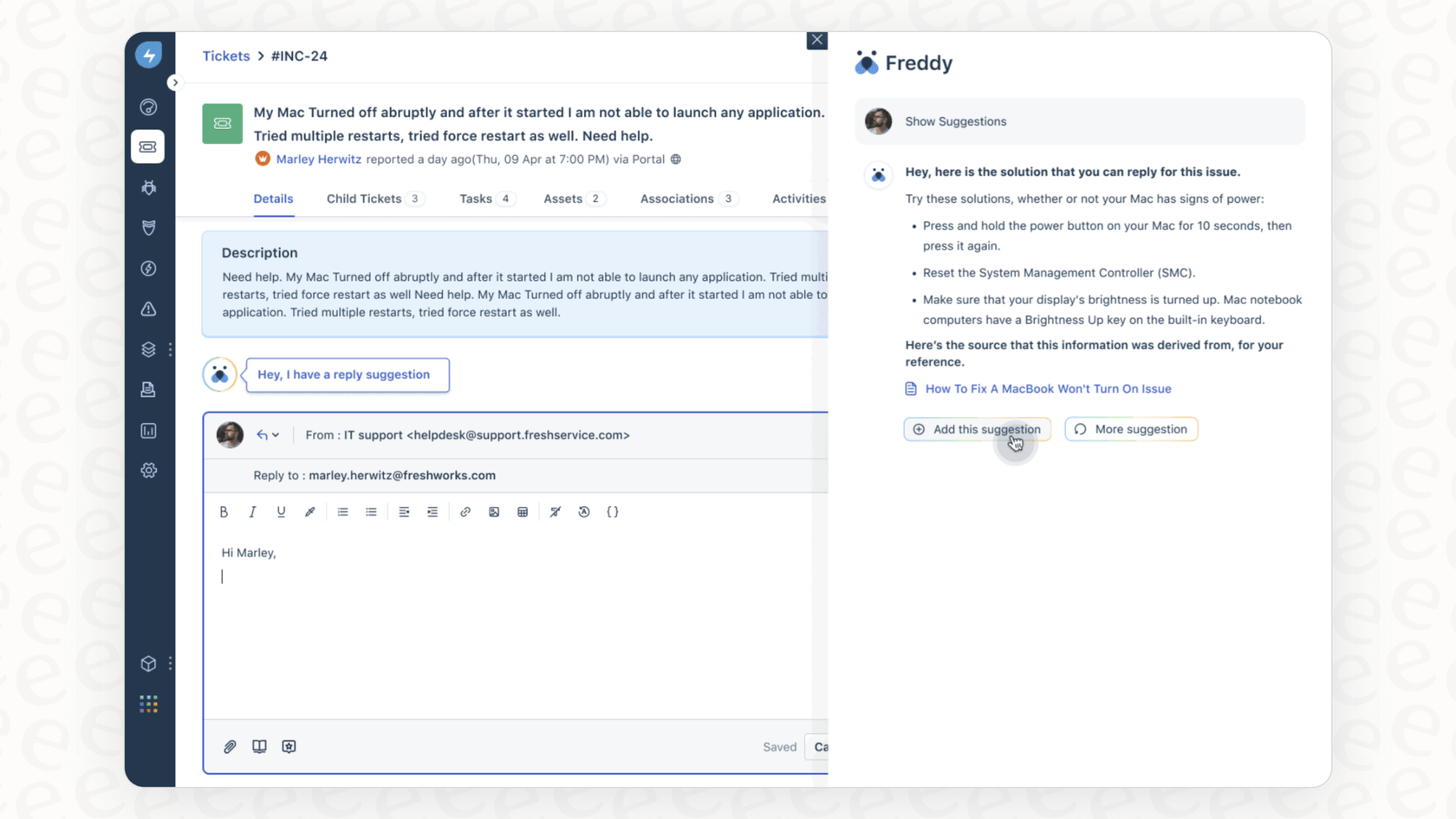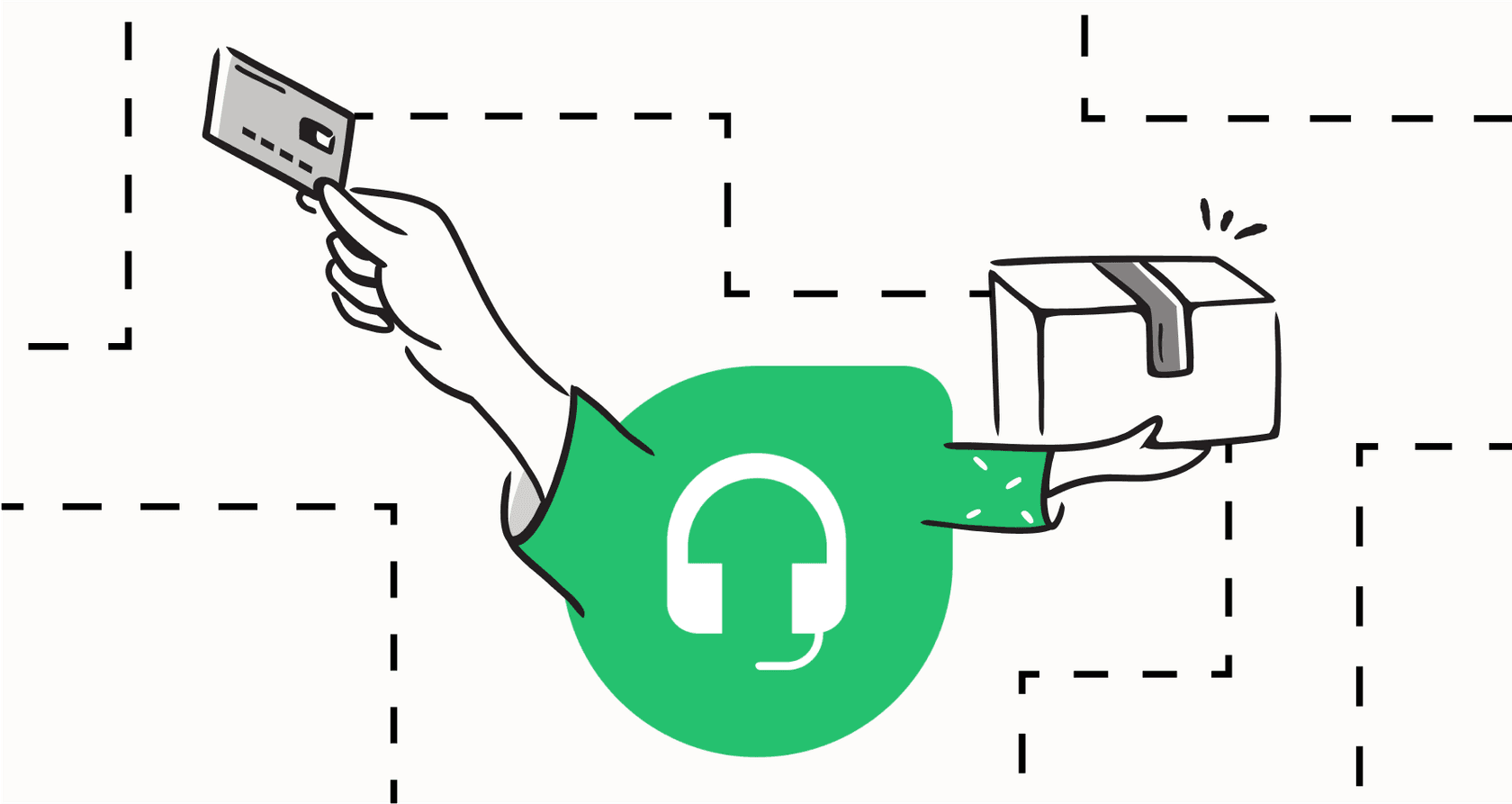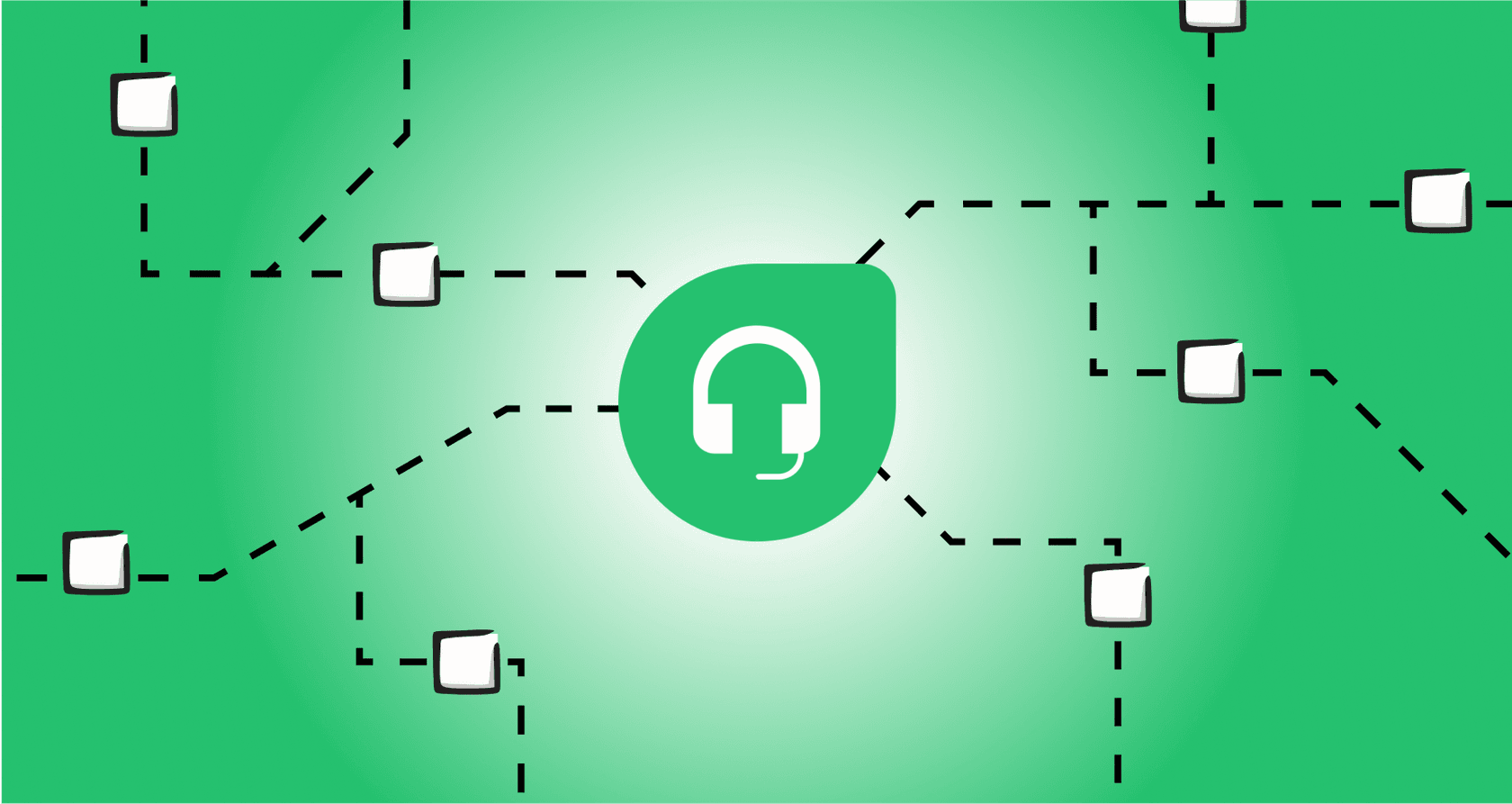A complete guide to Freshdesk AI omnichannel in 2026

Stevia Putri

Stanley Nicholas
Last edited January 16, 2026
Expert Verified

Let's be honest, running a support team today can feel a bit like being an air traffic controller. You've got emails landing, live chats popping up, social media DMs flying in, and the occasional SMS or phone call for good measure. Your customers expect you to keep track of it all and give them a smooth, consistent answer every time, no matter how they reach out.
Trying to manage that flood of conversations while ensuring no detail slips through the cracks is a major priority for growing teams. This is exactly the problem that AI-powered omnichannel platforms are meant to solve. They funnel every customer interaction into a single, organized stream so your team can work efficiently.
One of the leading players in this space is Freshdesk AI Omnichannel. It's built to bring organization and clarity to all those communication channels.
But is it the right tool for your team? This guide will give you a clear look at what you get with Freshdesk AI Omnichannel. We'll walk through its core features, explain its tiered pricing structure, and highlight a few key considerations you should keep in mind as you plan your setup in 2026.
What is Freshdesk AI Omnichannel?
Before we get into the details, let's clear up what we're talking about. Freshdesk AI Omnichannel is a comprehensive solution that combines two main parts: a robust omnichannel platform and its own advanced AI engine.
The omnichannel promise
At its heart, Freshdesk Omni is Freshworks' way of bringing all your customer conversations into one place. It bundles the powerful ticketing system of Freshdesk with the versatile live chat tools of Freshchat. The whole point is to give your agents a single screen where they can see a customer's entire history, whether they first emailed last week, chatted yesterday, or called this morning. It's a great way to keep agents focused in one workspace without losing the thread of the conversation.
Meet Freddy AI: The brains behind the omnichannel platform
Freddy AI is the artificial intelligence that Freshworks has built directly into its products. Its job is to handle routine tasks and give your human agents a helping hand. It does this in two main ways:
-
AI Agents: These are the bots that work on the front lines. Think of them as your first point of contact, automatically handling common customer questions, processing simple requests, and resolving routine issues across all your channels.
-
AI Copilot: This is the AI assistant that acts as a sidekick for your human agents. It works right alongside them, suggesting replies, summarizing lengthy conversation threads, and helping agents work faster while maintaining the company's tone of voice.
A closer look at the features
Now, let's get practical. How do these features actually help your team on a day-to-day basis?
AI agents for round-the-clock automated support
The Freddy AI Agents are all about taking routine questions off your team's to-do list. They can handle the steady stream of "Where's my order?" or "How do I reset my password?" queries 24/7, freeing up your human agents to focus on more complex, high-value customer interactions.
One of the platform's big draws is its no-code bot builder, which lets you set up and launch these agents quickly. It's an accessible tool for teams who want to automate without a dedicated developer. These agents are highly optimized to learn from information that lives inside the Freshworks ecosystem, like your official help articles and FAQ pages.

The copilot to help your agents shine
While the AI Agents deal with customers directly, the AI Copilot is focused on making your human agents' lives easier. It's built right into their workspace and acts like an intelligent assistant helping them out. It can:
-
Suggest replies based on what the customer is asking.
-
Summarize long tickets so a new agent can catch up quickly.
-
Provide real-time translations if you're supporting customers around the world.
The goal here is to make your agents more productive, keep your brand's voice consistent, and help new hires feel confident and capable much faster.

A unified workspace and smarter ticketing
The central promise of Freshdesk AI Omnichannel is that single inbox view. It pulls every conversation, from every channel, into one place. This gives your agents the complete history and context they need to offer support that feels personal. This is combined with smart ticketing features, like automatically sending a ticket to the agent best equipped to handle it based on their skills or current workload.
One consideration for teams is that the AI is most effective when it has access to all your relevant documentation. If the answer to a customer's question is in an external wiki like Confluence or a document in Google Docs, you'll want to ensure your setup allows the AI to reference those sources effectively.
Freshdesk AI Omnichannel pricing
Let's talk about the pricing structure. Freshdesk offers tiered plans to match different team sizes and needs, combining base subscriptions with optional AI add-ons.
Here's a breakdown of the Freshdesk Omni plans for 2026:
| Plan | Price (billed annually) | Key Features Included | AI Add-ons & Costs |
|---|---|---|---|
| Growth | $29 /agent/month | Unified conversations, ticketing, knowledge base, standard reports. | Freddy AI Agent: $100 per 1,000 sessions (500 free sessions included once per account). |
| Pro | $69 /agent/month | Everything in Growth + multilingual support, custom dashboards, multiple SLA policies. | Freddy AI Copilot: $29 /agent/month. Freddy AI Agent: $100 per 1,000 sessions. |
| Enterprise | $109 /agent/month | Everything in Pro + skill-based assignment, audit logs, sandbox, custom objects. | Freddy AI Copilot: $29 /agent/month. Freddy AI Agent: $100 per 1,000 sessions. |
There are two key factors to understand about this structure:
-
Agent-facing AI (Copilot) is a modular add-on. If you're on the Pro or Enterprise plan, you can choose to enable the AI assistant for your agents at $29 per agent, per month. This allows you to scale the technology according to your team's needs.
-
Customer-facing AI (Agent) follows a usage-based model. You are charged based on the number of "sessions" or conversations the AI has with your customers. This model is designed to align your costs with the actual volume of support the AI provides.
Key considerations for your setup
While Freshdesk AI Omnichannel offers a powerful and integrated package, there are some considerations to keep in mind as you build out your support strategy.
Optimizing knowledge across platforms
Freshdesk’s AI is highly specialized and efficient when your information and ticketing data are contained within the Freshworks world. It is built to learn from its own knowledge base. For companies that store critical information across various tools, like technical docs in Confluence, onboarding guides in Google Docs, or troubleshooting threads in Slack, it's important to consider how you will connect these sources to your helpdesk to ensure your AI has the most complete information possible.
Testing your AI behavior
Deploying AI to interact with customers is a significant step, and testing is key to a smooth launch. Freshdesk provides the tools to build and refine your agents. For teams that want to perform large-scale simulations on thousands of past tickets to predict exact automation rates before going live, you might look into specialized testing tools that complement the Freshdesk ecosystem.
Managing usage-based costs
The usage-based pricing for AI Agents means that as your customer base grows and more people reach out, your support tool expands its capacity with you. This makes it a scalable solution, though it does mean you'll want to monitor your volume to forecast your budget effectively during peak seasons or high-growth periods.
A different approach: A flexible AI layer for Freshdesk
Instead of changing your entire system, you can enhance your helpdesk by adding a flexible "AI layer" on top of the tools you already use. This allows you to keep your existing Freshdesk workflows while adding specialized capabilities that can bridge different knowledge sources.
A platform like eesel AI is designed to be that smart, complementary layer.
It connects with your Freshdesk knowledge base and also integrates with over 100 other apps. It can learn from your past tickets, internal wikis on Confluence, project plans in Notion, and key conversations in Slack. This gives the AI a comprehensive understanding of your company's knowledge, helping it provide highly accurate responses.

Setting up eesel AI is simple and works right alongside your current setup. With a one-click integration, it plugs into Freshdesk, and you retain full control over which tickets the AI handles and how it interacts with your customers.
One major benefit is the ability to test with confidence. eesel AI includes a simulation mode that lets you run the AI against thousands of your own past tickets. You can see exactly how it would have performed, helping you find areas to improve your documentation before the AI ever talks to a real customer.

Additionally, eesel AI offers a simple pricing model. eesel AI uses a flat, predictable pricing plan, so your bill remains consistent regardless of how many tickets the AI handles. This makes it a great choice for teams who want to keep their budgeting straightforward.
This video provides an overview of Freshdesk Omni's AI-powered features, including Freddy AI Copilot and AI agents for 24/7 support.
Is Freshdesk AI Omnichannel the one for you?
Freshdesk AI Omnichannel is an excellent choice for teams that want a mature, industry-leading platform that is tightly integrated. If you are looking for a trusted solution to manage all your channels in one workspace, Freshdesk is a strong contender with an impressive ecosystem.
The platform is most powerful when you leverage its full suite of tools, though it's helpful to consider how you will manage knowledge across different apps and how you prefer to handle usage-based pricing.
For teams that want to maintain maximum flexibility and total predictability in their costs while keeping Freshdesk as their primary ticketing engine, adding a dedicated AI layer is a smart way to upgrade. If that sounds like the right path for your team, see how eesel AI can work within your Freshdesk setup to make your support even stronger.
| Feature | Freshdesk AI Omnichannel | eesel AI |
|---|---|---|
| Setup Approach | Integrated, all-in-one platform | Flexible layer, integrates in minutes |
| Knowledge Sources | Optimized for the Freshworks ecosystem | 100+ sources (Past tickets, GDocs, Confluence, etc.) |
| Pricing Model | Tiered plans + usage-based options | Flat, predictable monthly fee |
| Pre-Launch Testing | Built-in configuration tools | Powerful simulation on historical tickets |
| Best For | Teams seeking a mature, all-in-one ecosystem | Teams looking to enhance Freshdesk with flexible AI and predictable costs |
Frequently asked questions
Freshdesk AI Omnichannel integrates Freshdesk's ticketing system with Freshchat's live chat, providing a unified platform for all customer interactions. It then layers Freddy AI on top, offering both customer-facing AI agents and agent-assisting AI copilot features.
Teams can benefit from 24/7 automated support via AI agents for repetitive queries, freeing human agents for complex issues. The AI Copilot assists agents with suggested replies and summaries, improving productivity and consistency across all channels.
The pricing for Freshdesk AI Omnichannel includes a base subscription, a per-agent fee for the AI Copilot ($29/agent/month on Pro/Enterprise), and usage-based options for the AI Agent ($100 per 1,000 sessions). This allows teams to scale their costs based on their specific support volume and requirements.
Freshdesk AI Omnichannel performs best when knowledge is within the Freshworks ecosystem. This ensures a seamless connection between your helpdesk and your AI agents. For information stored in external tools like Confluence or Google Docs, teams can use complementary integrations to bridge the gap.
Freshdesk AI Omnichannel offers built-in tools for setting up and testing your AI behavior. To further fine-tune performance and predict automation rates on thousands of past tickets, many teams choose to pair it with specialized simulation tools.
While Freshdesk AI Omnichannel is optimized for its internal knowledge base, a flexible AI layer like eesel AI can complement it by connecting to over 100 apps, including external wikis and documents. This provides the AI with a broader view of your company's entire knowledge base while keeping Freshdesk as your central workspace.
Share this post

Article by
Stevia Putri
Stevia Putri is a marketing generalist at eesel AI, where she helps turn powerful AI tools into stories that resonate. She’s driven by curiosity, clarity, and the human side of technology.





